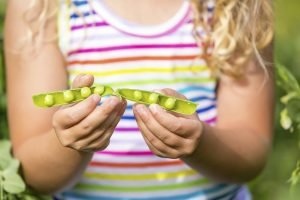- Home
- Health Topics
- Gardening at Your Child Care Centre
Gardening at Your Child Care Centre
Gardening at Your Child Care Centre
Having a garden at your child care centre is a great way to teach children about how plants grow and to get them interested in fruits and vegetables. Studies have shown that children that participate in gardens have:
- increased vegetable and fruit consumption
- a willingness to try new vegetables and fruit
- increased preferences for vegetables and fruit
You can also incorporate produce from your garden into the menu at your child care centre. It is important to ensure that if children are consuming foods from your garden that they are doing so in a safe manner.
The following are guiding principles to ensure that your garden is not only fun, but safe.
Child Care Gardening Tips
|
Gardening Guidelines
These guidelines must be followed when gardening at child care centres:
- Outdoor gardens must be grown in protected areas, such as within a fenced enclosure. This ensures that members from the general public and animals do not have access to the garden.
- Soil and fertilizer added to the garden must be sterilized. This ensures that soil used in the garden is not contaminated with potentially hazardous waste products. Sterilized soil can be ordered from a gardening or home improvement centre.
- Chemical pesticides, herbicides and poisonous substances are not permitted to be used in the garden.
- No poisonous plants (including flowers) are permitted to be grown in the garden. For information on poisonous plants grown in Canada visit: www.cbif.gc.ca and search poisonous plants.
- Sprouts and mushrooms are hazardous vegetable products and are not permitted in the garden.
- Supervisors are to provide age-appropriate gardening tools.
- Supervisors must work with children in small ratios to ensure safety. The ratio of child to staff members is to be determined at the discretion of the supervisor. The ratio should be at a level in which the staff member is able to supervise the actions of all children in the garden.
- No one is to eat anything out of the garden without permission. This is to be clearly explained to the children.
- Supervisors must monitor children for possible allergic reactions that may be associated with the garden.
- Children must always wash their hands after returning indoors from the garden.
- All produce must be washed with potable, cold running water before consumption, even if it appears to be clean.
- A written policy for operation of the garden including the items in this list must be created, and it must be accessible to those participating. This should include information such as maintenance of the garden, what ratio of child to staff member is allowable and who is responsible for the garden.
- Parents must be made aware that children will be consuming produce from the garden.
If you have any questions regarding gardens at your centre please call the Haldimand-Norfolk Health Unit at 519-426-6170 or
905-318-6623.
Adapted with permission of the North Bay Parry Sound District Health Unit. Further reproduction prohibited without permission.

